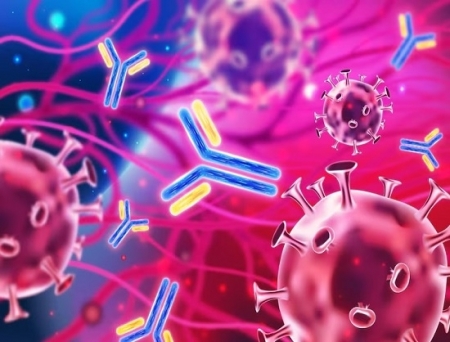Four Drugs in Race for First Bispecific ADC Approval: GlobalData

Bispecific (bs) Antibody Drug conjugates (ADCs) are an emerging therapeutic approach that presents advantages over traditional ADCs. With 84 percent of bsADCs in the pre-clinical or discovery stages, the pipeline is still nascent. However, with four candidates in phase-III, the race for the first approval in this novel landscape is underway, according to GlobalData.
ADCs are a key therapeutic modality in targeted cancer treatment, which combine the precision of monoclonal antibodies with the potency of cytotoxic drugs. With 21 global approvals, ADCs generated USD 13.6 billion in 2024, according to GlobalData. BsADCs represent further opportunities in this field, by leveraging bi-specific antibodies that simultaneously bind two distinct targets. With the ability to target multiple antigens, these bispecific constructs present opportunities to enhance the therapeutic ability of the ADCs by increasing selectivity and reducing off-target toxicity.
According to GlobalData’s Drugs Database, there are currently 211 bsADCs in the development pipeline, representing only 14 percent of the 1,554 active ADCs. Furthermore, 84 percent of bsADCs are in the early development stages of preclinical or discovery and are yet to reach clinical trials, highlighting the early life cycle of this landscape. However, there are four bsADCs in phase-III, all hoping to become the first approved therapy for this unique drug class.
All four phase-III bsADCs are being developed for East Asian markets. Systimmune and Bristol Myers Squibb’s Izalontamab Brengitecan, Shanghai JMT-Bio Technology’s JSKN-003, and Chia Tai Tianqing Pharmaceutical Group’s TQB-2102 are focused on China, whereas Amgen’s Maridebart Cafraglitide targets the Japanese market.
Jasper Morley, Pharma Analyst, GlobalData, commented, “This regional concentration aligns with the dominance of Chinese companies in ADC development and suggests that the first bsADC approval may occur in Asia, rather than in the US or EU. Alternatively, the most advanced bsADC in development for the US is Avenzo Therapeutics’ DB-1418, currently only in phase-II for non-small cell lung cancer.”
In continuation with traditional ADCs, three of these four phase-III products are oncology-based. Alternatively, Amgen’s Maridebart Cafraglitide is under development for obesity and type-II diabetes. This antibody-peptide conjugate functions as a Glucagon-Like Peptide (GLP-1R) agonist and a Gastric Inhibitory Polypeptide Receptor (GIPR) antagonist. Success for this product would mark the first non-oncology approval for an ADC product, potentially broadening the clinical perception of the modality.
Amgen Bispecific (bs) Antibody Drug conjugates (ADCs) Bristol Myers Squibb BsADCs Chia Tai Tianqing Pharmaceutical Group Gastric Inhibitory Polypeptide Receptor GlobalData Izalontamab Brengitecan Monoclonal antibodies Shanghai JMT-Bio Technology Systimmune
Last news about this category
We use our own and third party cookies to produce statistical information and show you personalized advertising by analyzing your browsing, according to our COOKIES POLICY. If you continue visiting our Site, you accept its use.
More information: Privacy Policy
















